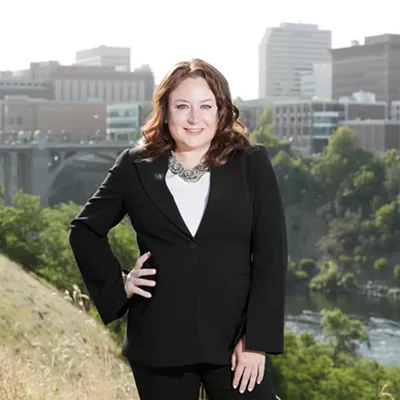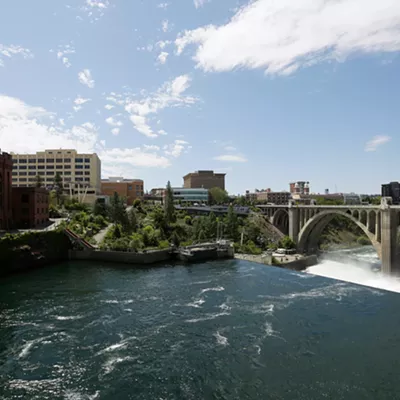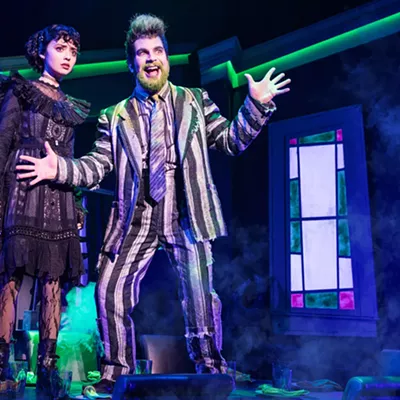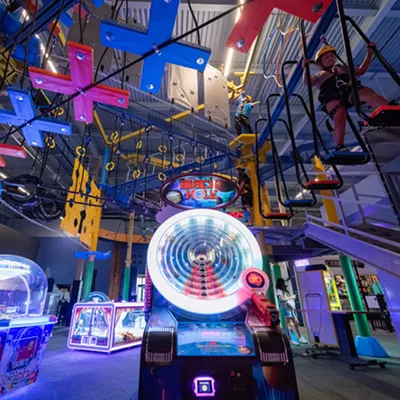The idea of making my own sushi roll was akin to making my own gum. There are some things you just don't make on your own. They are meant to be made by someone else: an expert. Sushi fell into that category for me, and I was convinced there was no way I could make those delicate rolls, handcrafted by trained chefs.
Yet, there I was, wrapped in an apron and standing before an open counter with a bowl of rice to one side, sheets of seaweed paper and a recipe to the other side.
It was the INCA After Dark program, which offers "interactive courses for fledgling to more accomplished cooks, taught by the region's top chefs in Spokane Community College's state-of-the-art teaching kitchen."
I rank closer to the "fledgling" end of the cook spectrum, and yet, by the end of the night, there were four perfectly packed sushi rolls, filled, rolled, sliced and boxed. I was completely impressed with the outcome.
Turns out anyone can learn to cook like a pro if they have the right guidance. More and more, people are embracing cooking classes, learning how to cook under the tutelage of trained chefs.
"I'm surprised at the response," says Sandra Gunn, owner of The Culinary Stone in Coeur d'Alene. She originally thought they would offer classes four times per month; however, the demand was so high, they soon had to increase that to 12 times per month, with a combination of structured classes and private classes for events like birthdays, bachelor parties and Girls' Nights Out.
From classes that cover basic concepts, like a recent Gourmet Grilling: Veggies & Steaks class at INCA, to a specialized class like Navarin of Lamb with Spring Vegetables, which was offered this spring at The Gourmet Way in Hayden, Idaho, cooking classes allow you to dabble in the culinary world.
With typical cooking classes lasting two hours and ranging, locally, from $40 to $60 per person, it's more expensive than your typical dinner; however, looking at the long-term rate of return (aka learning a skill), it's a worthwhile investment.
For those who would like new recipes and ideas that cater to their dietary needs, a cooking class is a great option. Several local cooking classes provide lessons for vegetarian, vegan and gluten-free dishes. A class featuring meatless burgers that are gluten and dairy-free kicked off the summer at The Kitchen Engine, located in Spokane's historic Flour Mill.
It's one thing to open a cookbook and try to follow a recipe, but it's altogether different to get hands-on experience with a trained chef who can help with technique, offer hints and, when your sushi roll falls apart, lend a skilled helping hand.
The right chef can make or break a class, which is why Gunn is very selective about who gets to teach at The Culinary Stone. "We have nine active chefs, and they are high caliber," she says. "These are highly trained, professional, technical chefs; these are not hobby chefs."
After a few cooking classes, you too might be more than a hobby chef.
COOKING CLASSES
These local spots are favorites for cooking classes. INCA After Dark will have you cooking in the same culinary kitchens used by students at the academy, while The Kitchen Engine, The Culinary Stone and The Gourmet Way offer classes within their retail locations, which is handy if you want to pick up any cooking gadgets while there.
The Kitchens at Second Harvest is another option for folks who want to master the art of scratch cooking, with an emphasis on utilizing locally sourced, nutritious ingredients. While the primary mission of The Kitchens is to serve the people who utilize their food pantries, anyone is welcome to attend their classes.
INCA After Dark
incaafterdark.scc.spokane.edu
533-8482
The Kitchen Engine
thekitchenengine.com
328-3335
sales@thekitchenengine.com
The Culinary Stone
culinarystone.com
208-277-4116
The Gourmet Way
gourmetwayhayden.com
208-762-1333
The Kitchens at Second Harvest
secondharvestkitchen.org
534-6678
Cooking with Master Chef Steve Geving
blanchardidaho.net/Blanchard_Cooking_Classes.htm
208-437-1037


















